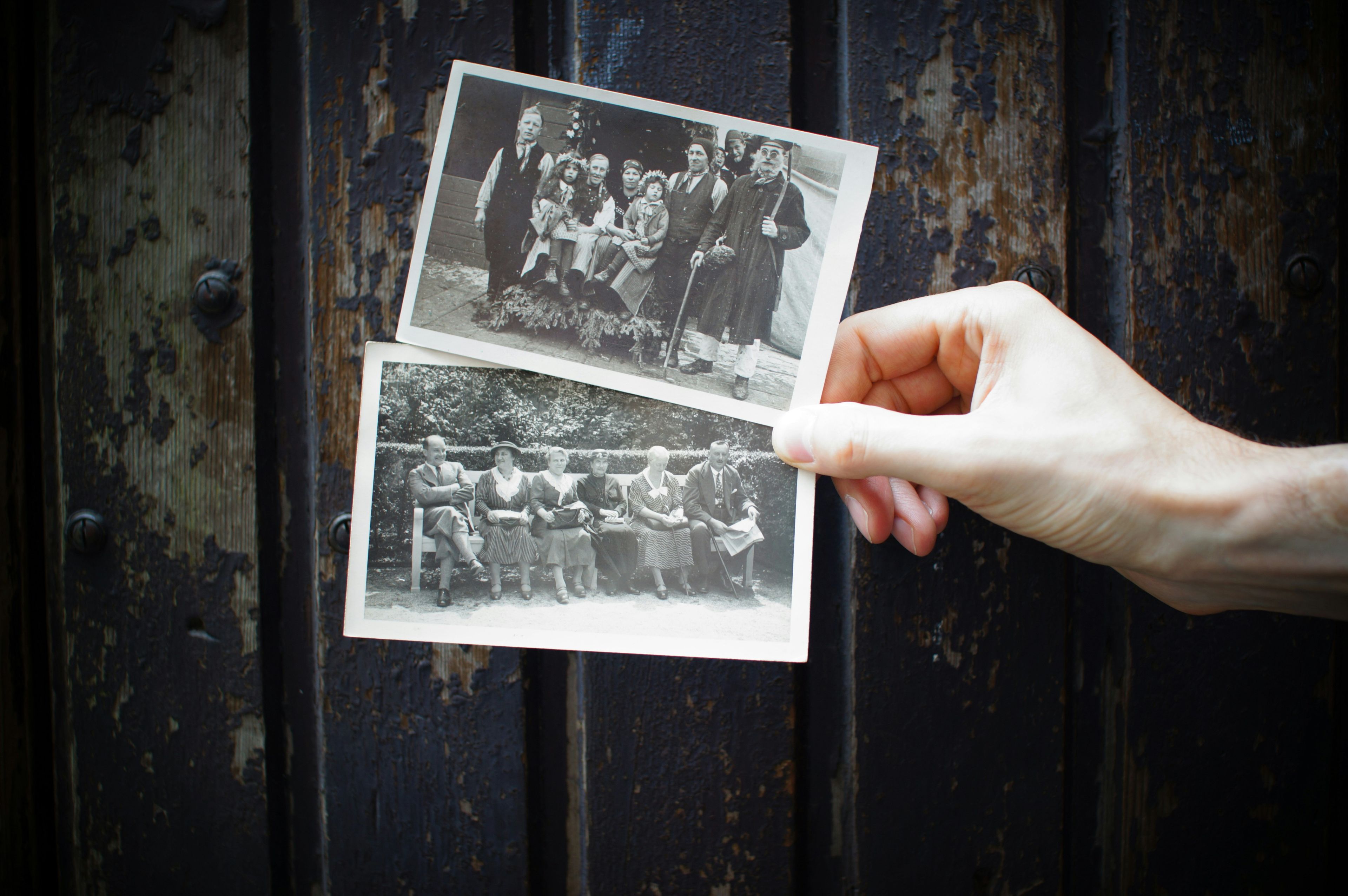This Is Why Family Estrangement Hurts So Bad
How do you grieve the loss of someone who “should” be in your life?
There is a series about estrangement on the Death, Sex, and Money podcast. It’s great, and I highly recommend listening to it. One of the anonymous callers said, " There are no public rituals for estrangement,” and I jotted it down quickly in my phone. Family estrangement can feel like a death that never ends. If you think people get uncomfortable talking about death, try talking about estrangement.
This Is Why Family Estrangement Hurts So Bad

- Family is supposed to love you.
We constantly hear messages like, “No one will love you more than your parents,” or, “Family is everything.” From a young age, we are promised that our family members will love us more than anyone else and that we should prioritize that love over everything. It's agonizing to watch the people around you experience family love while you experience pain.
Accepting this about your family is hard. It’s so hard that most people will spend their entire lives trying to avoid it. This is why people who were hurt by their parents are more likely to say, “I was a bad kid,” than they are to say, “My parents hurt me.” It’s why generations of adults repeat the same patterns despite being hurt by those same actions in their childhood.
Admitting that we did not receive the love we were promised can be painful. It still hurts even when we know estrangement is the best option.
- Humans are wired to stay close to their caregivers and other family members.
Decades of research show us that “People of all ages, including infants, have a need to belong. Infants’ brains are wired to form attachments to their caregivers and also to form behavioral systems that engage the complementary prewired attachment systems in caregivers.” We know that children will tolerate substantial abuse to remain attached to an abusive caretaker. The attachment system ensures that the infant will connect to the caregiver regardless of the quality of caregiving.
We’re also wired to seek connection with our family members. From an evolutionary perspective, the more family members connect and help each other, the greater the chances of their gene pool surviving and reproducing. This means a family relationship ending will likely be much more painful than any other type of breakup or separation.
- There’s judgment.
Family estrangement is a different type of grief because not everyone gets it. You may experience judgment and criticism or have your decisions questioned. This typically doesn’t happen with other kinds of grief or loss and can exacerbate the pain. Spending time with people who understand family estrangement and can offer you support may be helpful.
- Not everyone agrees on the story.
Family estrangement often happens when two people cannot agree on a perspective or set of facts. I think you abused me. You think you did your best. I believe you consistently violate my boundaries. You think that’s what family does. When two family members cannot make space to understand each other’s perspective or attempt to make amends, a rift begins to form in the relationship, and estrangement is even more likely.
When you know there is someone out there who does not see you or your history in the same way, it’s a challenge. They may have a completely inaccurate view of who you are and what you did. They may think you have the wrong impression of them or their behavior. It isn’t easy knowing someone out there will not validate your story or seek understanding. It’s also challenging when they attempt to share that different perspective with other people.
- It’s an ambiguous loss.
Ambiguous loss is a term pioneered by Pauline Boss, Ph.D., who defines it as “a relational disorder caused by the lack of facts surrounding the loss of a loved one.” Ambiguous loss is different because there is no verification of death and no promise that the person will return or be how they used to be. With ambiguous loss, the person may be deceased, living, or missing.
Pauline Boss details two types of ambiguous loss in her work.
- Type One: Occurs when there is physical absence with psychological presence. This includes situations when a loved one is physically missing or bodily gone. Catastrophic examples of physical ambiguous loss include kidnapping and missing bodies due to war, terrorism, ethnic cleansing, genocide, and natural disasters such as earthquakes, floods, and tsunamis. More common examples of physical ambiguous loss are divorce, adoption, and loss of physical contact with family and friends because of immigration.
- Type Two: Occurs when there is psychological absence with physical presence. In this second type of ambiguous loss, a loved one is psychologically absent—emotionally or cognitively gone or missing. Such ambiguous loss occurs from Alzheimer's disease and other dementias, traumatic brain injury, addiction, depression, or other chronic mental or physical illnesses that take away a loved one's mind or memory. Psychological ambiguous losses can also result from obsessions or preoccupations with losses that never make sense, e.g., some suicides or infant deaths.
My work with clients experiencing family estrangement typically looks like Type 1. This person is out in the world, living and walking around, but they are no longer present in the person’s life. Type 1 represents a very real and familiar experience for estranged people: physical absence with psychological presence. If you are estranged, you may find that your family member is no longer in your life physically, and they continue to take up a lot of your mental real estate.
Grieving someone who is still alive.

There are no funerals, cards, or group rituals for estrangement. How do you grieve someone who is still alive and missing from your life? How do you grieve someone who was never fully able to be there for you? How do you grieve the loss of someone who “should” be in your life?
- Give yourself permission to recognize that this is a loss that you are allowed to grieve. If someone close to you is no longer who they were or they’re gone, it’s a loss.
- You’re allowed to miss the “old” them. Even if what is happening isn’t their fault, even if they've moved on, and even if there’s nothing you can do to change that. People do change, and sometimes that hurts.
- Surrender to the fact that you cannot save everyone. You can model healthy boundaries. You can extend care and love. You can help within your limits. You can help them access different types of care. And you may not be able to save or fix everyone around you.
- Find people who get it. There are so many people in this world (I know many of them are on this email list) who understand what it’s like to watch someone deteriorate mentally or physically in front of them. There are people who know what it feels like to have a family member out there in the world that they don’t know anymore or never knew.
- Reflect on who you are and your role, and be honest about any contributions you may have made to the current state of the relationship. Some of you may need to tell yourselves, “This is not my fault. This is hard. I am allowed to be sad. I am doing what I can.” Some of you may need to consider how your communication style or actions added to the distance.
- Remember that this is hard, and nothing is permanent. Either you will get better at handling the situation, or it will get better.
- If there are any good memories, you are allowed to think of them and enjoy them. I know it doesn’t change the reality, and those memories are real.
- Be flexible and open to having a different type of relationship with this person (if possible) when you’re ready. You will change, and sometimes they will too. Having a balance of hope and acceptance of reality helps.
- Find ways to honor your grief. You can create rituals like you would with a death. Some of you may develop rituals celebrating your freedom from that old dynamic. Some of you may have rituals that celebrate or honor the relationship you used to have.